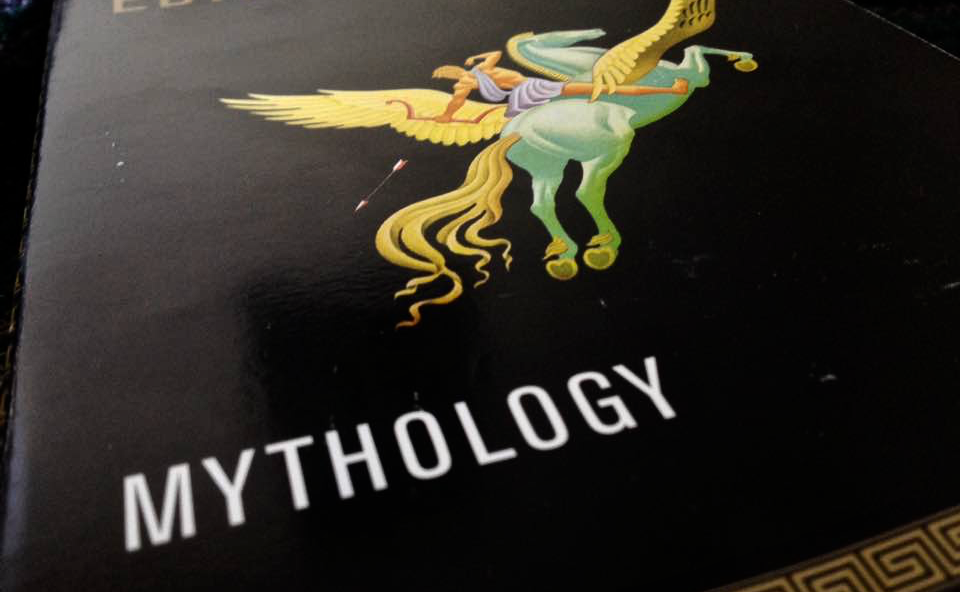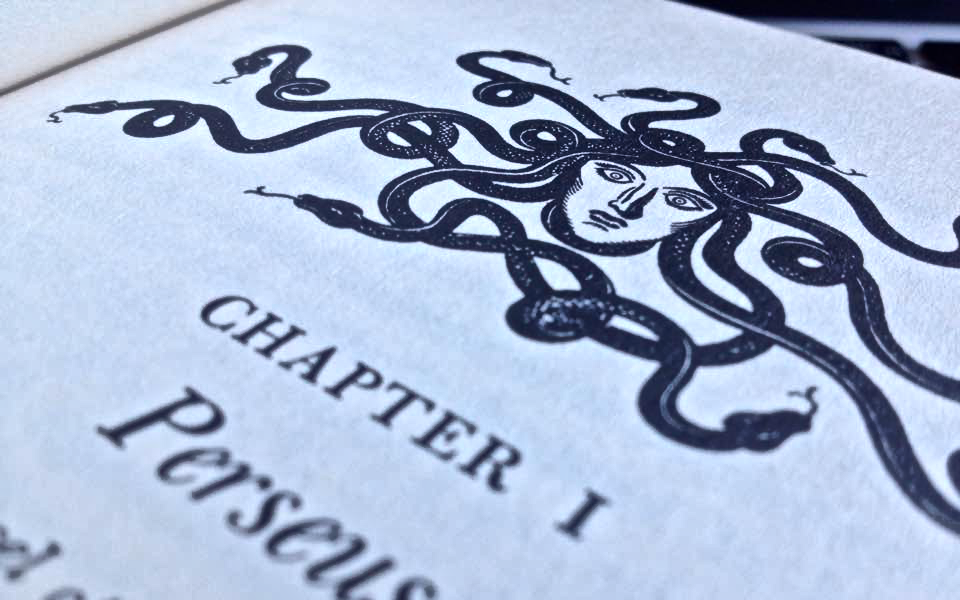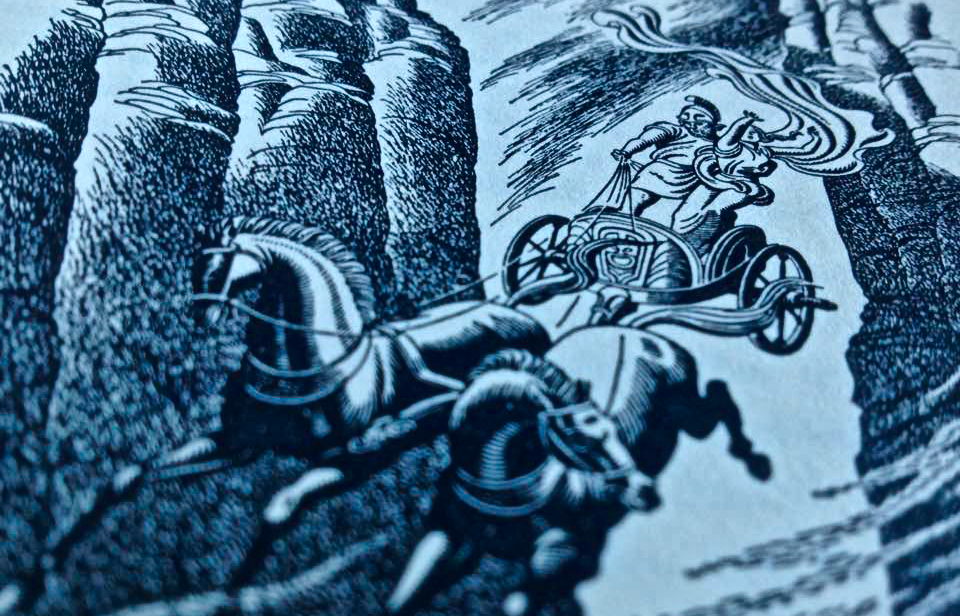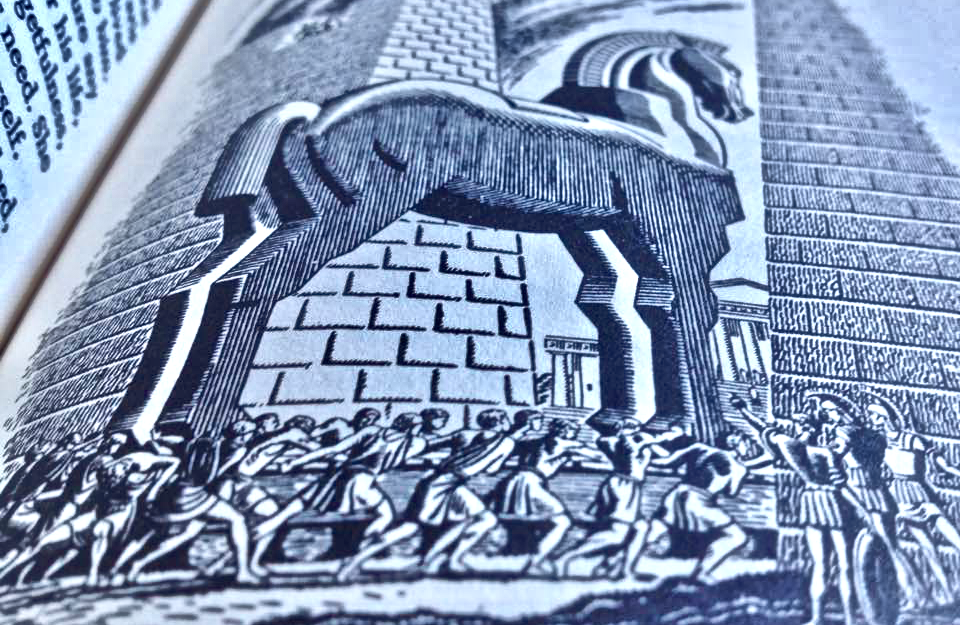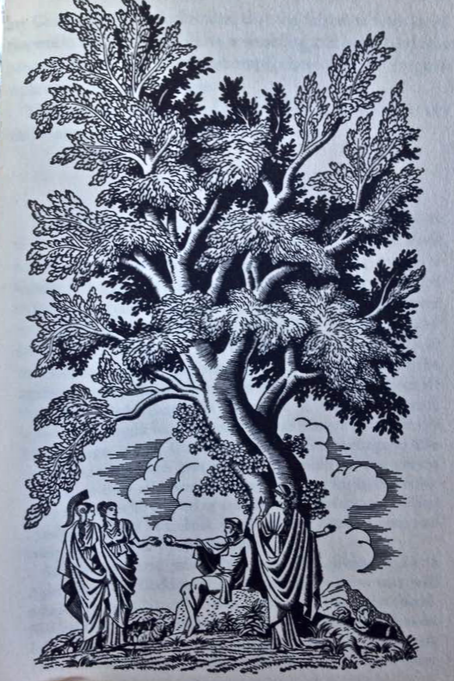"A people’s literature is the great textbook
for real knowledge of them. The writings
of the day show the quality of the people
as no historical reconstruction can."
— Edith Hamilton
Helen's beauty that launched a thousand ships. Prometheus' gift of fire to mankind. Pandora's Box. Hercules' strength. Achilles' heel. Icarus' fall...
These stories are over four thousand years old, but they're still told, and believed in, to this day. They're the original source material for many Hollywood blockbusters and some of Shakespeare's plays. Luke Skywalker, circa The Empire Strikes Back, brashly disregards the advice of the elder Yoda and flies to Cloud City to save his friends, but like Icarus pays the price. Romeo and Juliet are 17th Century versions of Pyramus and Thisbe, the original star-crossed Greek lovers. Jordan Belfort, The Wolf of Wall Street, is a Midas becoming, enriching himself, but emptying his soul.
These stories are over four thousand years old, but they're still told, and believed in, to this day. They're the original source material for many Hollywood blockbusters and some of Shakespeare's plays. Luke Skywalker, circa The Empire Strikes Back, brashly disregards the advice of the elder Yoda and flies to Cloud City to save his friends, but like Icarus pays the price. Romeo and Juliet are 17th Century versions of Pyramus and Thisbe, the original star-crossed Greek lovers. Jordan Belfort, The Wolf of Wall Street, is a Midas becoming, enriching himself, but emptying his soul.
FOUR THOUSAND YEARS YOUNG
Greek and Roman myths tap into universal truths; the recurring desires, ideas, and values that every generation experiences. They celebrate and caution different modes of behavior, through personification of virtues and vices. Heroes, villains, gods and humans all play a part in mapping the moral landscape of these series of stories.
HUMAN GODS
I especially appreciate the ancient Greeks' characterizations of their pantheon. Unlike the still-in-vogue monotheistic gods of history, their gods exude both virtues and flaws. They are not omniscient, all-powerful, unquestionable, perfect entities. They love, they fear, they help, they hurt. They're as celebrated just as much they are mocked:
Zeus' constant infidelity. His wife Hera's suspicions and jealousies. The allegiances and rivalries of deities duking it out above the Trojan battlefields in Homer's The Iliad. The goddess of love, Aphrodite's vanity. The war god Ares' temper.
The ancient Greeks didn't fear the gods so much as they loved this earth, and viewed humans as far more beautiful and powerful creature, ones who could actualize the hero or villain in themselves.
Aesop explains the Greek spirit best, I think, when he wrote the fable of The Astronomer:
Zeus' constant infidelity. His wife Hera's suspicions and jealousies. The allegiances and rivalries of deities duking it out above the Trojan battlefields in Homer's The Iliad. The goddess of love, Aphrodite's vanity. The war god Ares' temper.
The ancient Greeks didn't fear the gods so much as they loved this earth, and viewed humans as far more beautiful and powerful creature, ones who could actualize the hero or villain in themselves.
Aesop explains the Greek spirit best, I think, when he wrote the fable of The Astronomer:
An Astronomer used to go out at night to observe the stars. One evening, as he wandered
through the suburbs with his whole attention fixed on the sky, he fell accidentally into
a deep well. While he lamented and bewailed his sores and bruises, and cried loudly
for help, a neighbor ran to the well, and learning what had happened said:
“Hark ye, old fellow, why, in striving to pry into what is in heaven,
do you not manage to see what is on earth?
{JG}
through the suburbs with his whole attention fixed on the sky, he fell accidentally into
a deep well. While he lamented and bewailed his sores and bruises, and cried loudly
for help, a neighbor ran to the well, and learning what had happened said:
“Hark ye, old fellow, why, in striving to pry into what is in heaven,
do you not manage to see what is on earth?
{JG}
WHO WAS EDITH HAMILTON?
Edith Hamilton (1867 – 1964) was an American scholar and author, whose other works include The Greek Way, The Echo of Greece, and The Roman Way, among others. After earning her Masters Degree, Hamilton accepted the position of Headmistress at the Bryn Mawr Preparatory School in Baltimore, which she ran for 26 years. In 1957, at the age of 90, Edith Hamilton travelled to Athens, to receive an honorary Greek citizenship, and see a performance of one of the Greek plays she translated, Aeschylus' Prometheus Bound.
I have plans to read The Greek Way this year. Please let me know if you'd recommend any others.
I have plans to read The Greek Way this year. Please let me know if you'd recommend any others.
| “There are few efforts more conducive to humility than that of the translator trying to communicate an incommunicable beauty. Yet, unless we do try, something unique and never surpassed will cease to exist except in the libraries of a few inquisitive book lovers.” |
— Edith Hamilton
YOU MAY ALSO LIKE
{ * } Meditations by Marcus Aurelius
{ * } Poetics by Aristotle
{ * } The Indispensable Calvin and Hobbes by Bill Watterson
{ * } An Illustrated Book of Bad Arguments by Ali Almossawi
{ * } The Amazing Adventures of Kavalier & Clay by Michael Chabon
{ * } Poetics by Aristotle
{ * } The Indispensable Calvin and Hobbes by Bill Watterson
{ * } An Illustrated Book of Bad Arguments by Ali Almossawi
{ * } The Amazing Adventures of Kavalier & Clay by Michael Chabon

